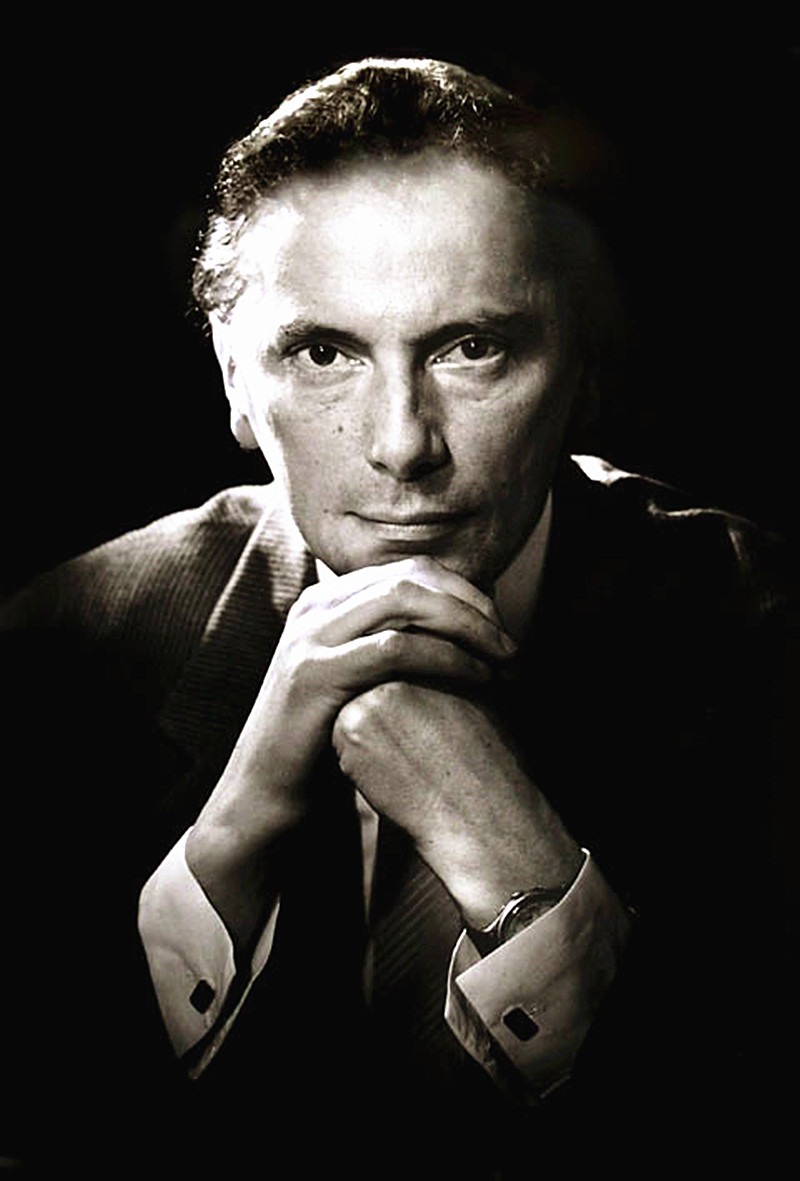|
||||||||||||||||||||||||||
 |
 |
|||||||||||||||||||||||||
|
|

|
||||||||||||||||||||||||
|
|
|
|||||||||||||||||||||||
| 安杰伊.帕努夫尼克(Andrzej Panufnik,1914——1991) | ||||||||||||||||||||||||
安·帕努夫尼克《节庆协奏曲》 |
||||||||||||||||||||||||
| 安杰伊·帕努夫尼克:节日音乐会 华沙爱乐乐团 雅克·卡斯普西克,指挥 | ||||||||||||||||||||||||
Andrzej Panufnik: Concerto festivo Warsaw Philharmonic Orchestra Jacek Kaspszyk, conductor |
||||||||||||||||||||||||
|
|
||||||||||||||||||||||||
|
音乐历史上的今天 1914年9月24日,作曲家安杰伊.帕努夫尼克(Andrzej Panufnik,1914——1991)在华沙降生。“出生在1914年的波兰可不是好事。我长到六七岁都没什么吃的,即便你有钱。当我的创作力达到顶峰时,二战爆发了。然后在1949年,又开始压制艺术家。” 安杰伊·帕努夫尼克爵士(1914年9月24日生于波兰华沙)。生于波兰的英国作曲家和指挥家,他创作的作品具有独特的当代波兰风格,尽管他的作品体裁多种多样。 帕努夫尼克的父亲是一个乐器制造者,他的母亲是一个小提琴家,也是他的启蒙老师。他9岁开始作曲,1932-1936年在华沙音乐学院学习作曲,1937-1938年在维也纳学院与菲利克斯·维加特纳学习指挥。之后,他在巴黎和伦敦完成了学业,回到华沙。二战期间,他不得不在那里低调下来,偶尔以钢琴家的身份在地下音乐会中表演。他所有的早期作品都在1944年的华沙起义中被毁,但他能够 重新创作出其中的一些作品。 帕努夫尼克指挥过克拉科夫爱乐乐团(1945-1946)和华沙爱乐乐团(1946-1947),从1947年起,他担任多个欧洲管弦乐团的客座指挥。他的作品也引起了人们的注意,并赢得了许多奖项; 他于1954年 来到英国。(1961年,他加入英国国籍。)帕努尼克是伯明翰市交响乐团的音乐总监(1957-1959),之后致力于创作自己的作品,包括10部交响乐,各种其他管弦乐作品,协奏曲,室内作品,以及合唱和声乐作品。1990年9月,帕努尼克36年来第一次回到波兰,指挥了他最后一部交响乐的欧洲首演。 次回到波兰,指挥了他最后一部交响乐的欧洲首演。 1991 年 1 月 1 日,伊丽莎白二世女王授予帕努夫尼克爵士称号,以表彰他对英国文化的贡献。同年,波兰总统莱赫·瓦文萨还为他颁发了“波兰复原功绩勋章”。同年10 月27日去世,享年 77 岁。
帕努夫尼克的自传《塑造自我》于1987年出版。 今日视频:1、 华沙爱乐乐团演奏安·帕努夫尼克《节庆协奏曲》2、 安·帕努夫尼克大提琴协奏曲 ; 3、安·帕努夫尼克 小提琴协奏曲。 |
|
|||||||||||||||||||||||
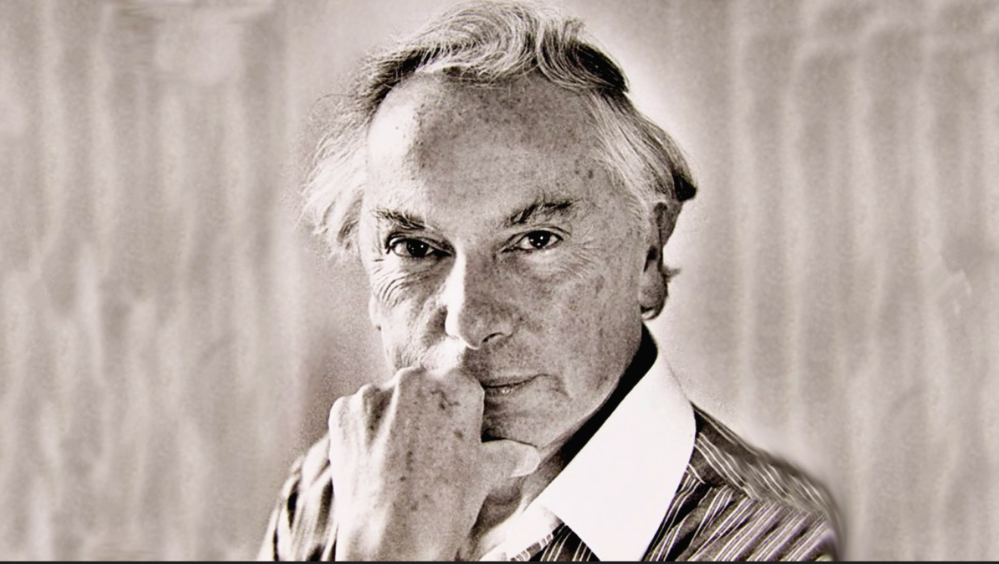 |
||||||||||||||||||||||||
| 安杰伊.帕努夫尼克(Andrzej Panufnik) | ||||||||||||||||||||||||
|
在战后初期的那些年里,他开始重新创作那些失传的交响乐和其他作品,但很快他就决定要放下过去,重新开始。他只保留了三部修复作品,即《五首波兰农民歌曲》、《钢琴三重奏》(他的作品编号为1)以及《悲剧序曲》(献给他勇敢的哥哥米雷克,后者是波兰地下组织的一名无线电操作员)。他在本国赢得了国际赞誉和荣誉,那些
20 世纪 40 年代中期的作品的独特性使他成为了波兰先锋派的“奠基人”。 |
|
|||||||||||||||||||||||
| In the early years after the war, he began to recreate those lost symphonies and other works, but soon he decided to let go of the past and start anew. He only kept three restored works, namely "Five Polish Peasant Songs", "Piano Trio" (his work number 1), and "Tragic Overture" (dedicated to his brave brother Mirek, who was a radio operator in the Polish underground organization). He won international acclaim and honors in his own country, and the uniqueness of those works from the mid-1940s made him the "founder" of the Polish avant-garde. After 1948, with the implementation of Soviet socialist realism, Parnufnik's situation underwent a huge change. As a top composer in Poland, he enjoyed a high reputation in Europe, but the pressure he endured was much greater than that of his compatriots, and he was forced to create music according to the requirements of Soviet socialist realism, creating artificially "positive" music arranged according to the authorities' instructions. All his valuable works were accused of being "Western", "bourgeois", and "corrupt". On the 100th anniversary of Chopin's death in 1949, he was elected as the vice-chairman of the UNESCO Music Committee, although the Polish authorities never allowed him to participate in any related ceremonies or concerts. He worked tirelessly, trying to secure better economic and other assistance for his fellow composers and deeply concerned about the future of Polish music; however, due to criticism, restrictions, and unbearable political pressure, he could no longer create, and the driving force in his life thus died out. In 1954, he successfully escaped from Poland to protest against the control of communism over artistic creators. This action triggered a large amount of malicious propaganda and lies against him, and subsequently, his name and music were completely banned from being disseminated in Poland for 23 years. | ||||||||||||||||||||||||
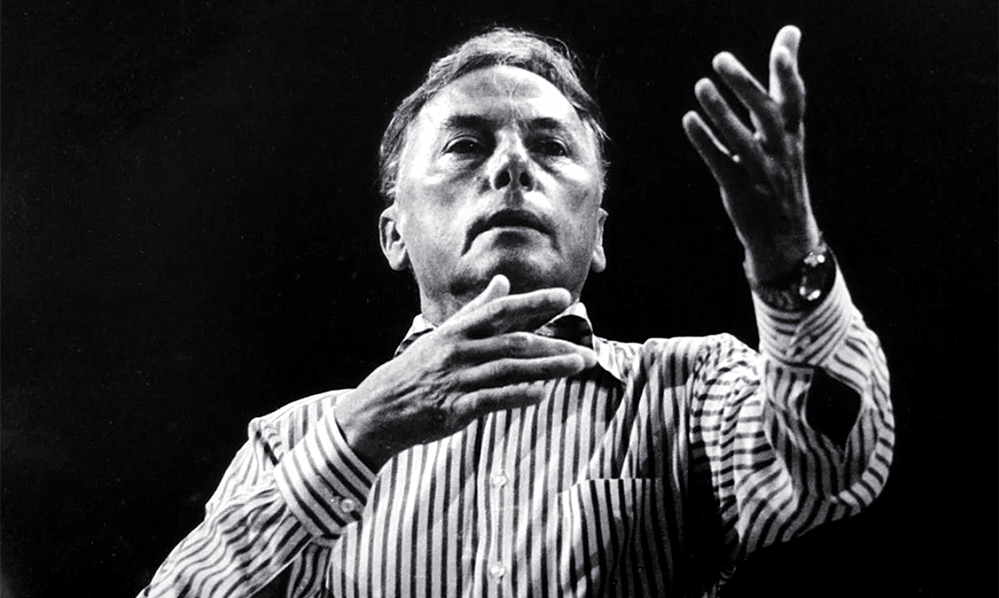 |
||||||||||||||||||||||||
| 年轻的费迪南德·里斯(Ferdinand Ries ) | ||||||||||||||||||||||||
|
Today in Music
History:
September 24, 1914. Composer Andrzej Panufnik (1914 - 1991) was born in Warsaw. "Being born in Poland in 1914 was no good news. I didn't have enough to eat until I was six or seven years old, even if you were rich. When my creative power reached its peak, World War II broke out. Then in 1949, artists were suppressed again." Sir Andrzej Panufnik (born on September 24, 1914 in Warsaw, Poland). An English composer and conductor born in Poland, his works have a unique contemporary Polish style, although his works have various genres. Panufnik's father was an instrument maker and his mother was a violinist, who was also his启蒙 teacher. He began composing at the age of nine, studied composition at the Warsaw Conservatory of Music from 1932 to 1936, and studied conducting with Felix Wiegantner at the Vienna Academy from 1937 to 1938. Later, he completed his studies in Paris and London and returned to Warsaw. During World War II, he had to keep a low profile there and occasionally performed as a pianist in underground concerts. All of his early works were destroyed during the Warsaw Uprising in 1944, but he was able to recreate some of them. Panufnik conducted the Krakow Philharmonic Orchestra (1945-1946) and the Warsaw Philharmonic Orchestra (1946-1947), and from 1947, he served as a guest conductor for several European orchestras. His works also attracted attention and won many awards; he came to the UK in 1954. (In 1961, he became a British citizen.) Panufnik was the music director of the Birmingham Symphony Orchestra (1957-1959), and then devoted himself to creating his own works, including 10 symphonies, various other orchestral works, concertos, chamber works, and choral and vocal works. On September 9, 1990, Panufnik returned to Poland for the first time in 36 years and conducted the European premiere of his last symphony. On this return, he conducted the European premiere of his last symphony. On January 1, 1991, Queen Elizabeth II awarded Panufnik the title of Sir in recognition of his contribution to British culture. He died on October 27 of the same year at the age of 77. Today's video: 1. Warsaw Philharmonic Orchestra performs Andrzej Panufnik's "Festival Concerto" 2. Andrzej Panufnik's Cello Concerto; 3. Panufnik - Violin Concerto. |
||||||||||||||||||||||||
 |
||||||||||||||||||||||||
| 安杰伊·帕努夫尼克逝世 30 周年纪念活动 | ||||||||||||||||||||||||
| 30th Anniversary Special Feature of Andriei Panufnik | ||||||||||||||||||||||||
| 30周年纪念日:波兰作曲家安杰伊·帕努夫尼克于 30 年前去世 2021 年 10 月 27 日 11:45, 10 月 27 日是波兰著名作曲家安杰伊·帕努夫尼克逝世 30 周年纪念日。他一生中超过一半的时间都在英国度过,并因对英国文化的贡献而被伊丽莎白二世女王授予爵士头衔。帕努夫尼克 1914 年出生于华沙一个音乐世家,曾在该市的音乐学院学习作曲和指挥。1944 年之前他创作的所有作品都在那年华沙反抗德国占领者的起义期间的一场火灾中被焚毁。在德国占领期间,他一直待在华沙,参加了许多艺术活动,包括与维托尔德·卢托斯拉夫斯基一起演奏钢琴二重奏。战后,帕努夫尼克担任了重要的指挥职务,并发展了自己的作曲事业。尽管在国内取得了众多成就,但他还是于 1954 年非法离开波兰,移民到了英国。从那时起直到 1977 年,他的作品在波兰的演出都被禁止,甚至他的名字在出版物中也不被允许提及。在英国定居后,他担任伯明翰市交响乐团的音乐总监达三年之久,但从 1959 年起,他便全身心投入到作曲工作中,赢得了众多奖项和荣誉。#在这一天 30 年前,安杰伊·帕努夫尼克爵士去世了。他是波兰最杰出的作曲家和指挥家之一。1957 年,他来到英国,并担任了伯明翰交响乐团的首席指挥。后来,他决定将自己的一生完全奉献给作曲事业。推特图片链接:pic.twitter.com/ca4sAYZAu2 — 苏格兰驻波兰大使馆 🇵🇱 (@PolishEmbassyUK) | ||||||||||||||||||||||||
 |
||||||||||||||||||||||||
| 安杰伊·帕努夫尼克 诞辰100周年纪念活动——室内乐音乐节 | ||||||||||||||||||||||||
| 100th Anniversary Commemoration of Anijy Parnovnik - Chamber Music Festival | ||||||||||||||||||||||||
| 罗德斯基四重奏乐团与安德烈亚·帕努夫尼克的家人以及好友们共同邀请大家参加在伦敦著名的文化中心“国王广场”举行的纪念作曲家诞辰 100 周年的室内乐音乐节。 | ||||||||||||||||||||||||
| rodsky Quartet wraz z rodziną Andrzeja Panufnika oraz przyjaciółmi zapraszają na festiwal muzyki kameralnej z okazji 100. rocznicy urodzin kompozytora w prestiżowym londyńskim centrum kulturalnym Kings Place. | ||||||||||||||||||||||||
 |
||||||||||||||||||||||||
| 安杰伊·帕努夫尼克,1970 年,照片:卡米拉·杰塞尔 / 博斯威与霍克斯收藏馆 | ||||||||||||||||||||||||
| Andrzej Panufnik, 1970, photo: Camilla Jessel / Boosey & Hawkes Collection | ||||||||||||||||||||||||
|
Born in Warsaw in 1914 into a musical family, Panufnik studied composition and conducting at the city’s Music Conservatory. All of his compositions written before 1944 were destroyed in a fire that year during the Warsaw Uprising against Poland's German occupiers. He spent the years of the German occupation in Warsaw, taking part in numerous artistic events, including performing in a piano duet with Witold Lutosławski. After the war, Panufnik held prominent conducing posts and developed his career as a composer. Despite numerous triumphs at home, he decided to leave Poland illegally and emigrated to Britain in 1954. From that time until 1977, performances of his works in Poland were banned and even his name was not allowed to be mentioned in publications. After settling in Britain, he served for three years as music director of the City of Birmingham Symphony Orchestra, but from 1959 onwards he devoted himself solely to composing, winning numerous awards and distinctions. — Polish Embassy UK 🇵🇱 (@PolishEmbassyUK) October 27, 2021 He made his first, and only, visit to Poland in 1990 after the collapse of communism in the country. On January 1, 1991, Queen Elizabeth II honoured Panufnik with a knighthood for his services to British culture. He died in October of that year at the age of 77. (mk/gs) |
||||||||||||||||||||||||
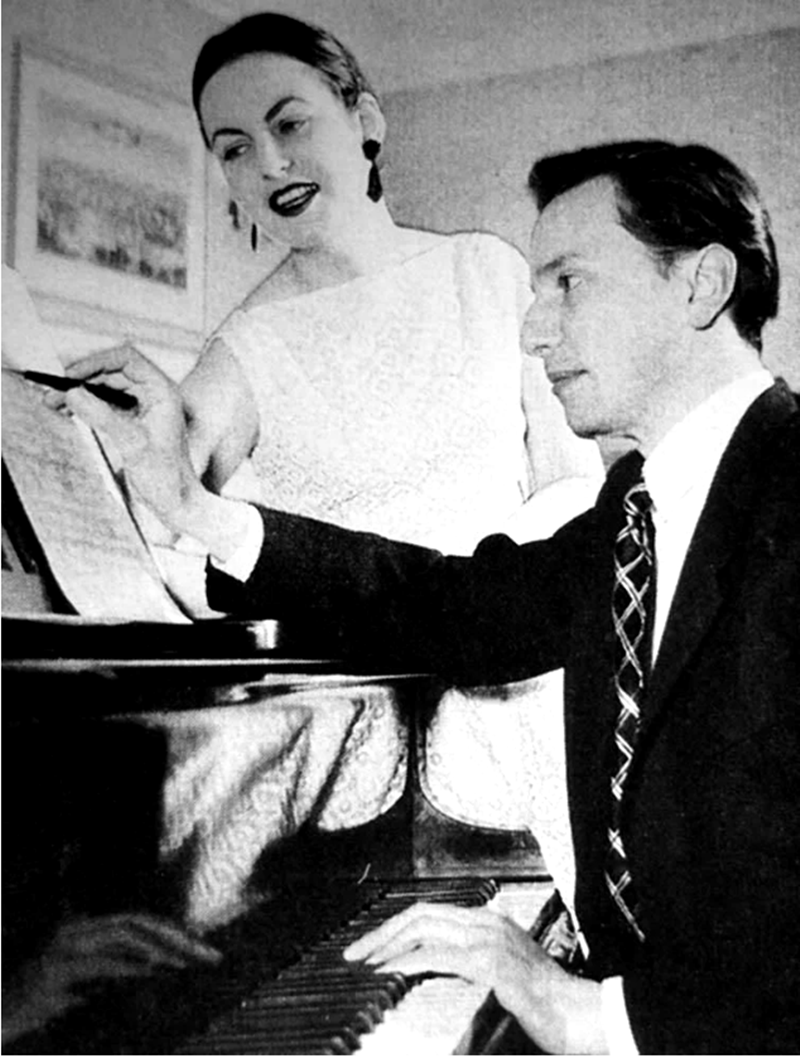 |
||||||||||||||||||||||||
| 安杰伊·帕努夫尼克与他的第一任妻子(照片:© 卡米拉·杰塞尔·帕努夫尼克 FRPS) | ||||||||||||||||||||||||
| Andrzej Panufnik with his first wife, photo: © Camilla Jessel Panufnik FRPS | ||||||||||||||||||||||||
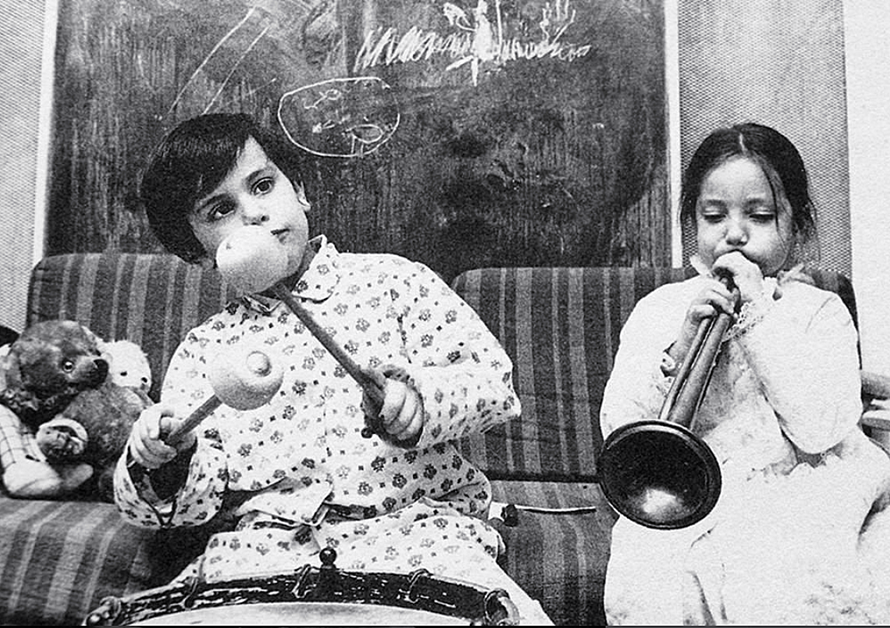 |
||||||||||||||||||||||||
| 安杰伊·帕努夫尼克与他的儿子杰里米以及女儿罗克萨娜在一起,照片:© 卡米拉·杰塞尔·帕努夫尼克(皇家摄影学会会员) | ||||||||||||||||||||||||
| Andrzej Panufnik with his son Jeremy and daughter Roxanna, photo: © Camilla Jessel Panufnik FRPS | ||||||||||||||||||||||||
 |
||||||||||||||||||||||||
| 安杰伊·帕努夫尼克和他的妻子,照片:© 卡米拉·杰塞尔·帕努夫尼克(皇家摄影学会会员) | ||||||||||||||||||||||||
| Andrzej Panufnik with his wife, photo: © Camilla Jessel Panufnik FRPM | ||||||||||||||||||||||||
 |
||||||||||||||||||||||||
| 安杰伊·帕努夫尼克与他的儿子杰里米以及女儿罗克萨娜在一起,照片:© 卡米拉·杰塞尔·帕努夫尼克(皇家摄影学会会员) | ||||||||||||||||||||||||
| Andrzej Panufnik with his son Jeremy and daughter Roxanna, photo: © Camilla Jessel Panufnik FRPS | ||||||||||||||||||||||||
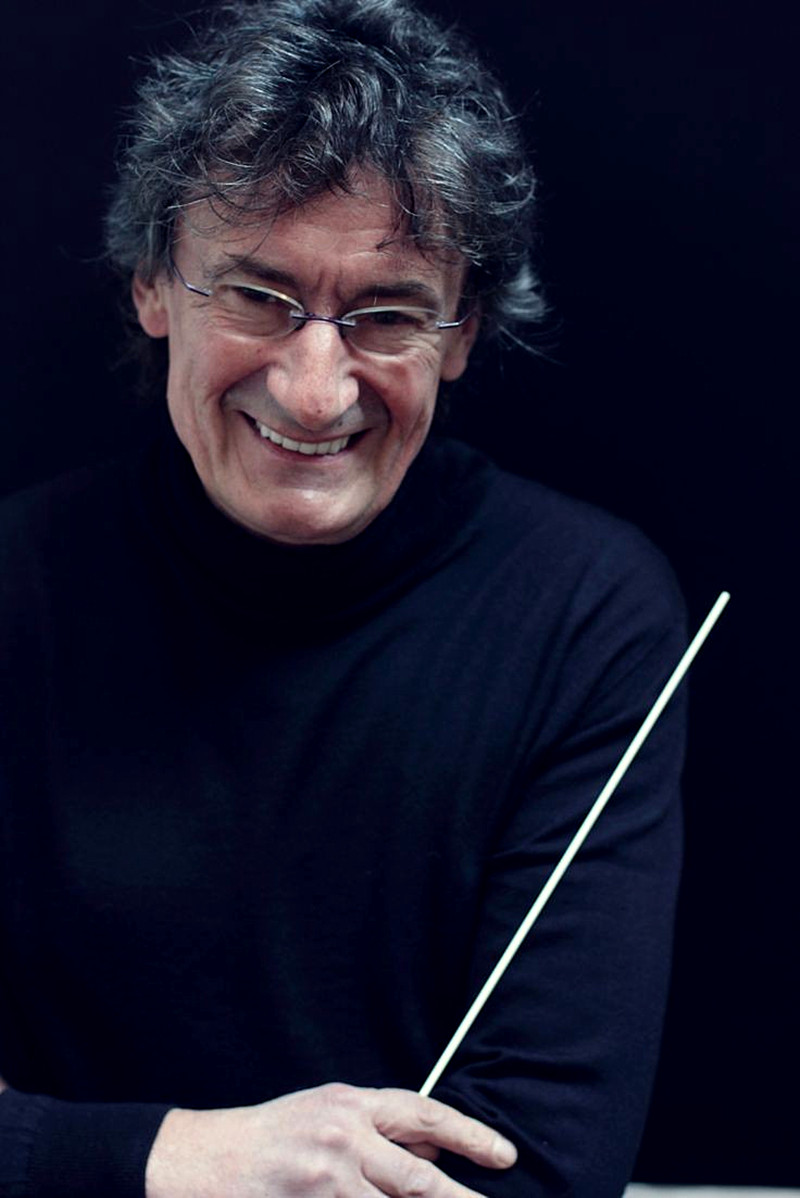 |
||||||||||||||||||||||||
| 雅塞克·卡普斯基克 Jacek Kaspszyk | ||||||||||||||||||||||||
| 雅塞克·卡普斯基克曾在弗雷德里克·肖邦音乐学院学习指挥、音乐理论和作曲,于 1975 年毕业。同年,他在华沙的“大剧院——国家歌剧院”首次担任指挥。1976 年,他被任命为杜塞尔多夫德意志歌剧院的首席客座指挥。次年,他在柏林举行的赫伯特·冯·卡拉扬指挥大赛中获得第三名。1978 年,他首次与柏林和纽约爱乐乐团合作,并被任命为波兰国家广播交响乐团的首席指挥——两年后成为该乐团的音乐总监。1982 年,他移居伦敦,在皇家节日音乐厅与爱乐乐团合作首次登台演出,此后他经常与伦敦交响乐团、伦敦爱乐乐团、皇家爱乐乐团和苏格兰国家交响乐团合作。从那时起,他指挥过许多国际乐团,包括巴伐利亚广播电台和法国国家交响乐团。1991 年至 1995 年,他担任北荷兰交响乐团的首席指挥和音乐顾问。 | ||||||||||||||||||||||||
|
Jacek
Kaspszyk studied conducting, music theory and composition at the
Fryderyk Chopin University of Music, graduating in 1975, that
same year making his conducting debut at Warsaw’s Teatr Wielki –
Opera Narodowa. In 1976 he was appointed Principal Guest
Conductor of the Deutsche Oper am Rhein in Düsseldorf. The
following year he won the 3rd prize at the prestigious Herbert
von Karajan Conducting Competition in Berlin. In 1978 he made
his debut with the Berlin and New York Philharmonic Orchestras
and was appointed Principal Conductor of the Polish National
Radio Symphony Orchestra – two years later becoming its Music
Director. In 1982 he moved to London where he made his debut at the Royal Festival Hall with the Philharmonia Orchestra, after which he appeared regularly with the London Symphony Orchestra, the London Philharmonic, the Royal Philharmonic and the Royal Scottish National Orchestra. Since then, he has conducted many international orchestras including the Bayerische Rundfunk and the Orchestre National de France. From 1991-1995 he was Principal Conductor and Music Advisor of the Noord Nederlands Orkest. |
||||||||||||||||||||||||
 |
||||||||||||||||||||||||
| 亚历山大·西科夫切斯基 Alexander Sitkovetsky | ||||||||||||||||||||||||
| 亚历山大·西科夫切斯基,出生于莫斯科的小提琴家,八岁便首次登台演出,并在耶胡迪·梅纽因学校接受过专业训练。他因与皇家爱乐乐团、慕尼黑室内乐团和东京交响乐团等乐团合作的协奏曲演出而闻名。其备受赞誉的唱片包括安德烈·帕努夫尼克的《小提琴协奏曲》和菲利普·萨耶尔斯的《小提琴协奏曲》。作为指挥家,他与澳大利亚室内乐团、挪威室内乐团和伦敦莫扎特演奏者乐团等团体合作。他是西科夫切斯基三重奏的创始成员,以其在法兰克福老歌剧院、阿姆斯特丹音乐厅和威格莫尔音乐厅的演出以及近期在亚洲的巡演而备受赞誉。 | ||||||||||||||||||||||||
| Alexander Sitkovetsky, Moscow-born violinist, debuted at eight and studied at Yehudi Menuhin School. Renowned for concerto performances with orchestras like Royal Philharmonic Orchestra, Munich Chamber Orchestra, and Tokyo Symphony Orchestra. Acclaimed recordings include Andrzej Panufnik’s Violin Concerto and Philip Sawyers Violin Concerto. As a director, he collaborates with ensembles such as Australian Chamber Orchestra, Norwegian Chamber Orchestra, and London Mozart Players. A founding member of the Sitkovetsky Trio, celebrated for performances at Alte Oper Frankfurt, Concertgebouw Amsterdam, and Wigmore Hall, and recent tours in Asia. | ||||||||||||||||||||||||
|
|
||||||||||||||||||||||||
【安·帕努夫尼克】【A.Panufnik】大提琴协奏曲 Concerto for Cello and Orchestra |
||||||||||||||||||||||||
| 安德烈·帕努夫尼克 Andrzej Panufnik: 大提琴协奏曲 Concerto for Cello and Orchestra Steven Honigberg, cello Aukso Chamber Orchestra Marek Mos, conductor | ||||||||||||||||||||||||
| 安杰伊·帕努夫尼克 - 小提琴协奏曲(西托夫斯基改编) 小提琴:亚历山大·西托夫斯基,指挥:卢卡斯·博罗维奇,乐团:柏林音乐厅管弦乐团 | ||||||||||||||||||||||||
| Andrzej Panufnik - Violin Concerto (Sitkovetsky) Violin: Alexander Sitkovetsky, violino Conductor: Łukasz Borowicz Orchestra: Konzerthausorchester Berlin | ||||||||||||||||||||||||
|
|
||||||||||||||||||||||||
| 未得原作者编者授权严禁转载www.mt77.com任何内容 | ||||||||||||||||||||||||
|
|
|
||||||
|
copyright © 2003-2005 xilu.com all rights reserved. |
||||||
|
|
||||||

